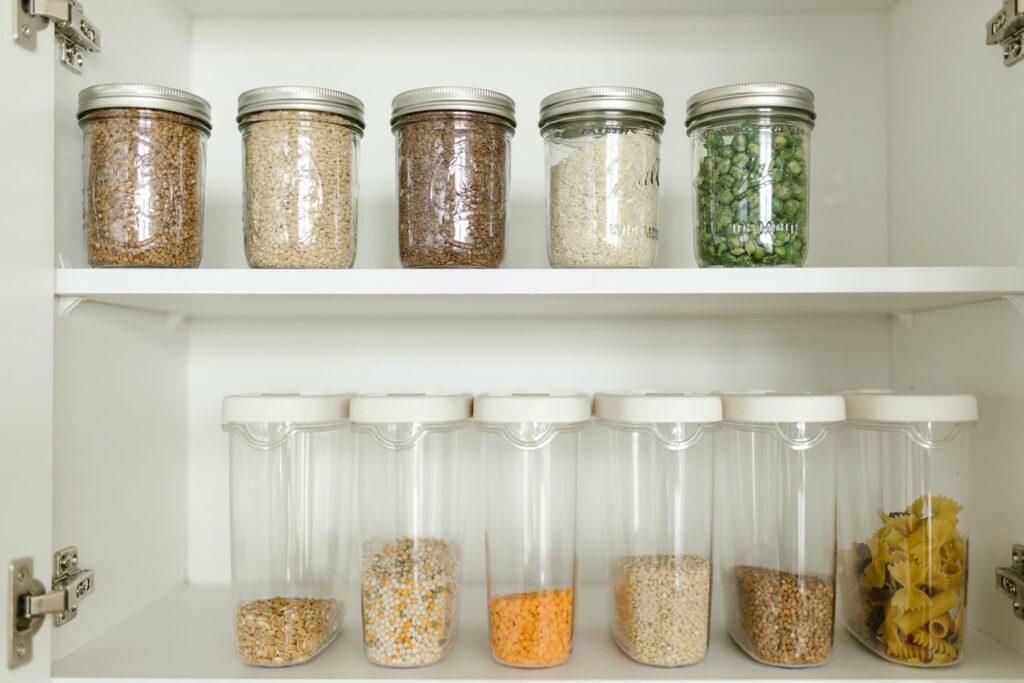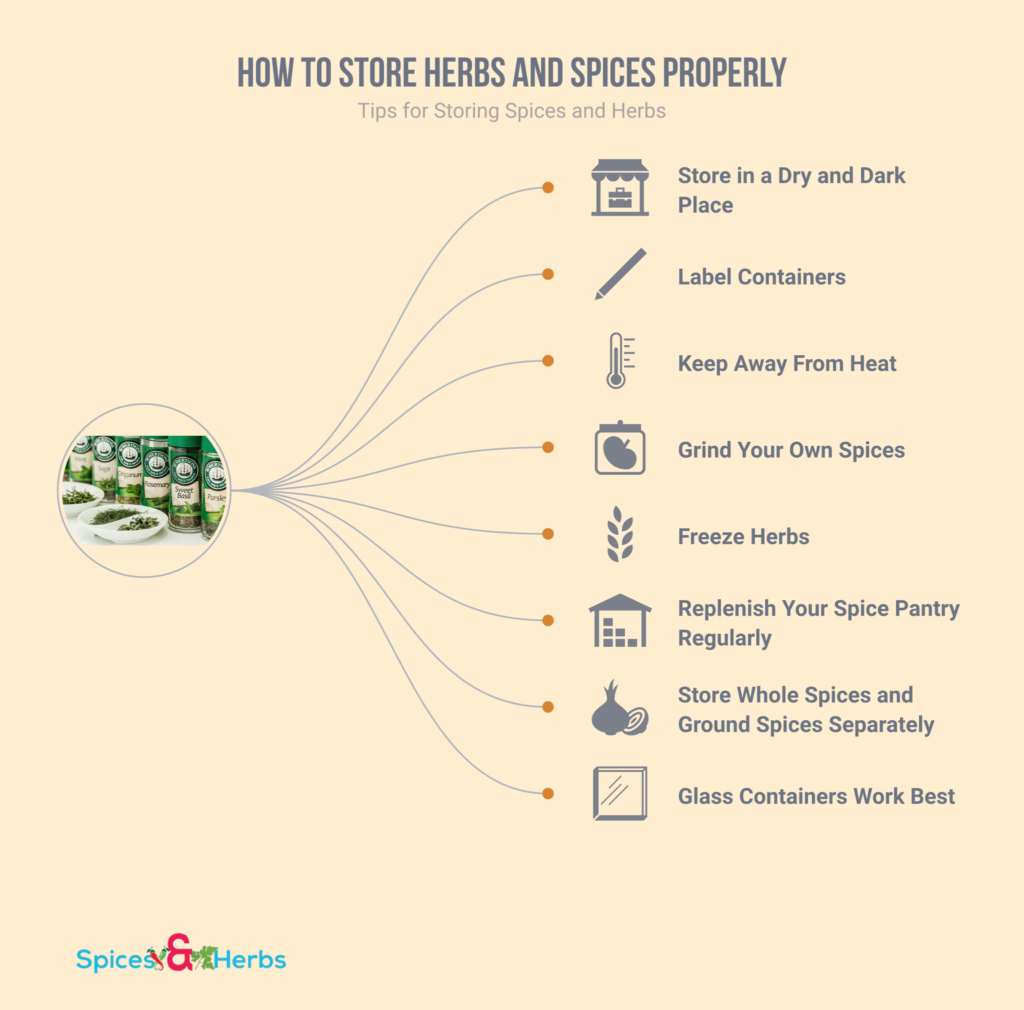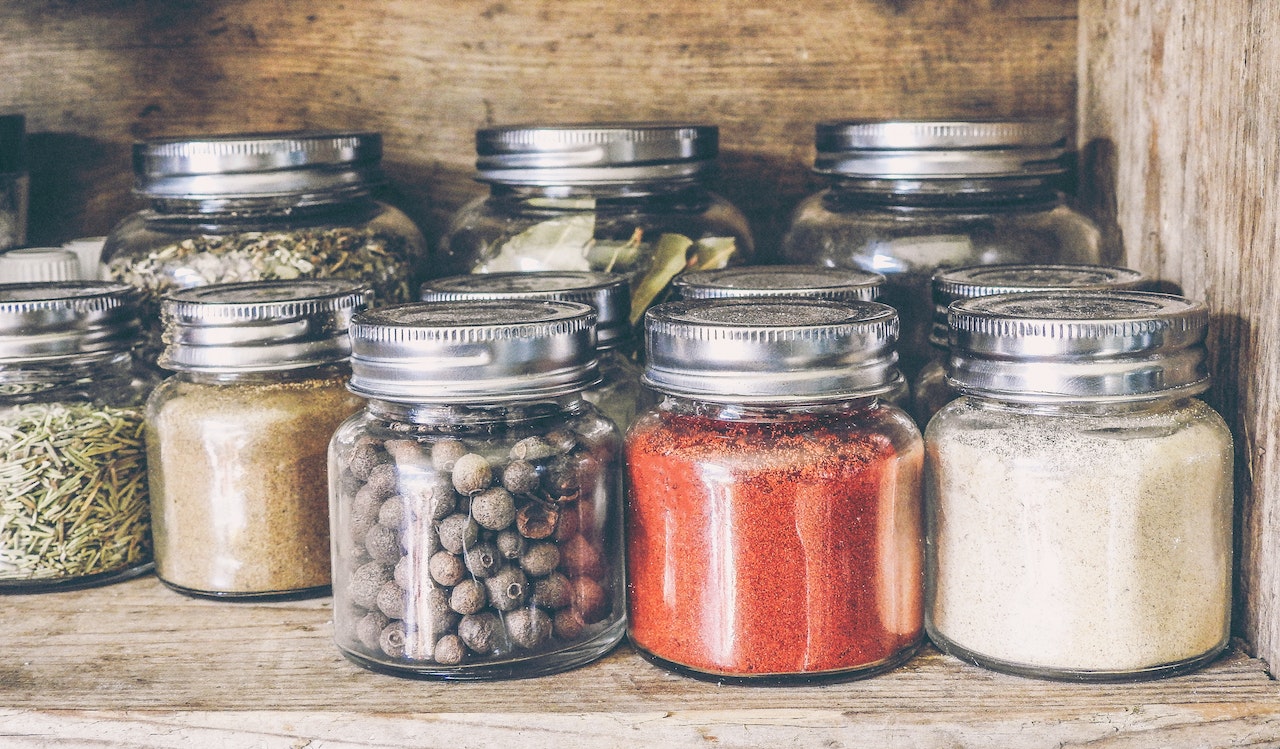Do you to know how do you store herbs and spices properly? As any seasoned chef will tell you, the secret to making delicious food is all in the seasoning. What could be a better way to add a burst of taste than using herbs and spices? But if you’re not storing them properly, you could deprive your dishes of that extra flavor.
Don’t worry, though – we’ve got you covered. Whether you have a cupboard full of jars or a drawer of bags, we’ll show you how to keep your herbs and spices fresh and flavorful for as long as possible. So get ready to store herbs and spices properly – and start giving your dishes the punch they really deserve!
What Is the Shelf Life of Opened Spices?

Cooking with spices can be truly transformative – they can add flavor and complexity to your dishes with just a pinch or a dash. But if you’re like most home cooks, you probably have a spice rack full of jars and bottles that have been opened and half-used. Those opened spices could lose their potency and spoil over time if you’re not careful.
First, let’s talk about how long opened spices can last. The good news is that many spices can last a year or more without losing flavor if stored properly. Whole spices (like cinnamon sticks or peppercorns) can last up to three or four years. However, ground spices and spice blends (like chili powder or curry powder) will lose their flavor and aroma more quickly, usually within six months to a year. This is because the grinding process exposes more surface area to air and light, which can cause the spices to oxidize and lose their essential oils.
So, if you have opened spices in your pantry that have been there for a year (or more!), it’s probably time to replace them. That way, you can ensure your dishes are always flavorful and delicious!
Why Is Proper Storage Important?
Proper spice and herb storage are just as important as using high-quality ingredients. Here’s the reason why:
1: Prolongs Shelf Life
The shelf life of spices and herbs can vary, but proper storage can help prolong their freshness. Exposure to light, heat, and moisture can cause your spices and herbs to lose their potency and become stale over time. Store your herbs and spices away from direct sunlight in a cool and dry place to avoid this. Keep them in an airtight container to prevent moisture from getting in.
2: Retains Flavor
When spices and herbs are exposed to air, the essential oils that give them unique flavor and aroma evaporate quickly. An airtight container will help retain the essential oils, so your spices and herbs can retain their flavor for longer.
3: Saves Money
Proper storage of your spices and herbs can save you money in the long run. When your herbs and spices are not stored properly, they lose their potency, and you may end up using more than you need, which can lead to waste. By storing them properly, you’ll be able to use less of them and still get the same level of flavor.
4: Prevents Contamination
Spices and herbs are often used in small amounts, which makes it easy for them to become contaminated. When properly stored, they are less likely to come into contact with bacteria and other contaminants, which can help keep you and your family healthy.
5: Enhances Cooking Experience
Properly stored spices and herbs can make your cooking experience more enjoyable. They add flavor and depth to your dishes; when fresh, they are more potent and flavorful. You can experiment with combinations and create new recipes to impress your family and friends.
These are just some reasons why properly storing herbs and spices is important. Now that you know the basics, it’s time to learn how to store them properly!
How to Store Herbs and Spices Properly

Now that you know why proper storage is essential, let’s discuss the tips for storing spices and herbs.
👉Store in a Dry and Dark Place
These little powerhouses of flavor are sensitive beings and can easily lose their oomph if exposed to heat, light, and humidity. So, you’ll want to find the coolest, driest, and darkest spot in your kitchen. It is best to store them in an airtight jar or container out of direct sunlight, such as a pantry or cabinet.
👉Label Containers
Labeling your containers so you know what’s inside them is always a good idea. This can help you avoid confusion and save time for the right herb or spice. Moreover, you can keep track of the expiration dates this way.
👉Keep Away From Heat
Heat can cause them to dry out and lose flavor, so store them in a cool, dry place. You’ll want to avoid storing them near your stove or oven, where the heat can be intense. Instead, consider keeping them in a cabinet or drawer that doesn’t get too warm.
👉Grind Your Own Spices
To keep your spices fresh and fragrant, you should grind your own spices and store them in an airtight container away from heat and light. Buying whole spices in bulk and grinding them yourself allows you to enjoy the full flavor and aroma without losing flavor over time. The good news is that grinding your spices is easier than you think! You can even use a coffee grinder to do the job. By grinding and storing your fresh spices, you can elevate your cooking to another level.
👉Freeze Herbs
One of the easiest methods is to freeze your herbs by packing them snugly into ice cube trays with a splash of water or olive oil. Once frozen, pop them out and store them in a labeled freezer bag. This trick preserves your herbs’ flavor and color and makes them easy to grab for cooking on the fly.
Fresh herbs like parsley, cilantro, and basil can be chopped and frozen in small batches to preserve their flavor and aroma. Toss them into soups, stews, and sauces directly from the freezer.
👉Replenish Your Spice Pantry Regularly
Regularly replenishing your spice pantry ensures your herbs and spices remain fresh and flavorful. Since the longer they sit on your shelf, the less effective they become. So, add a little spice to your life and ensure your pantry is properly stocked for all your culinary adventures.
👉Store Whole Spices and Ground Spices Separately
In order to keep their flavors intact, a key rule of thumb is to store whole spices and ground spices separately. It will help preserve the oils in the spices, prevent them from clumping together, and keep them fresher for longer.
👉Glass Containers Work Best
Enter glass containers are highly recommended for storing herbs and spices. The glass doesn’t absorb any flavors or odors and creates an airtight seal that keeps your herbs and spices fresher for longer. Plus, it’s more eco-friendly than plastic containers! So the next time you organize your spice rack, consider switching to glass containers for a tastier cooking experience.
With these tips, you can now properly store your herbs and spices and extend their shelf life while retaining their best flavors. Remember, proper storage can make all the difference in the flavors of the dishes you create, so take extra care when storing your herbs and spices.
Tips When Buying Herbs and Spices
Here are things to keep in mind when buying herbs and spices to get the right ones for your needs.
1 – Always Check the Freshness
Rule number one when buying herbs and spices is to verify their freshness. Once their aroma dies down or they turn grey, they lose flavor and don’t work as well in your dishes. Look out for suppliers with high turnover or packaging that allows you to peek inside and examine their freshness.
2 – Use Whole Herbs and Spices
Purchasing herbs and spices in their whole form instead of already-broken down versions lets you see if they’re fresh, gives them a longer shelf life, and usually tastes better than pre-grinded or pre-blended versions, which can lose their flavor and aroma quickly.
3 – Be Careful when Choosing Blends
Pre-blended seasonings have their uses, but as each blend is different, you should be cautious when they expose which spices they have. Look for those whose ingredients are clearly stated and have minimal additives to obtain the desired flavor in your dishes.
4 – Be Conscious of Quality
The quality of herbs and spices can differ significantly from place to place. High-quality herbs are grown with care, have little dust, and contain many essential oils that bring flavor to your cooking. Keep an eye out for the origin and the company that processed and packaged the herbs and spices, as this can influence the quality.
5 – Organic is Always the Best
Organic food is the ultimate choice today, and herbs and spices are no exception. As organic farming removes chemical-based fertilizers and additives, you get clean natural herbs rich in essential oils, making them tastier than their non-organic counterparts.
6 – Go Easy on the Pocket
Like anything else, not every herb or spice has to be bought in its most pricey form. You could go for the more inexpensive alternative; your dish may only know the difference once you have a recipe to follow.
7- Spices Have Expiration Dates
Although herbs and spices don’t have an expiry date, they have a shelf life that can vary from 6 to 18 months. Without an expiry date to know what’s old or not, it’s up to you to discern when they need to be replaced. You can use your senses to help; when they appear flattened and powdery, they’re most like rancid.
8 – Only Buy What You Require
Herbs and spices come in all shapes and sizes, and not all are necessary to have on hand. It’s essential to consider what you frequently use in your cooking and start with those herbs and spices. It’s not practical to purchase a large bottle of something you only use once or twice a year.
9 – Experiment
In addition to buying single herbs and spices, consider trying pre-made blends. These can be a convenient and delicious way to add complex flavors to your dishes without buying and mixing individual spices.
10- Don’t Forget the Basics
While it’s fun to experiment with new flavors and blends, remember the basics. Salt, pepper, and garlic are staples that should always be in your pantry.
These tips should help you find the right herbs and spices for your kitchen. With their incredible range of flavors and aromas, it’s no surprise that they can make or break a dish.
Frequently Asked Questions
1: How do I store my herbs and spices to stay fresh for as long as possible?
The key to keeping herbs and spices fresh is to protect them from light, air, and moisture. These three elements are the enemies of freshness. So avoid storing herbs and spices near windows or in humid environments like above the stove. Instead, store them in a dark, dry place. A pantry or cabinet is ideal. Also, avoid storing herbs and spices in clear containers. Instead, choose opaque containers that block out light.
2: Can I store fresh herbs differently than I do dried herbs?
Yes. Fresh herbs have a higher water content than dried herbs, requiring slightly different storage. The best way to keep fresh herbs fresh is to store them in a glass of water, like a bunch of flowers. Place a plastic bag over the herbs and store them in the refrigerator. You can also wrap fresh herbs in damp paper towels before storing them in the refrigerator.
3: What is the best container to use when storing herbs and spices to ensure they stay fresh?
The best container is an airtight container with a tight-fitting lid. Glass jars or metal tins work well. You can also consider using a vacuum sealer to remove all air from the container before storing. It will help to prolong freshness. When choosing a container, consider the size. A large container will allow for more air to enter, which can lead to the herbs and spices going stale more quickly. It’s also important to label your containers with the date of purchase or date of expiration.
4: Should I keep my herbs and spices in a cool place, or can they be stored at room temperature?
The proper storage temperature for spices is 70 degrees. However, some herbs and spices are more delicate and will benefit from being stored in a cool place. Examples of delicate herbs include basil, parsley, and cilantro. These should be stored in the refrigerator. You should store spices like paprika, chili powder, and cumin in a cool place away from sunlight.
5: Are there any herbs or spices that require special storage considerations?
Yes. Herbs with high moisture content, like dill and chives, should be stored in the refrigerator. Spices particularly susceptible to moisture, such as mustard and poppy seeds, should also be stored in the refrigerator. And finally, whole spices, like cinnamon sticks and cardamom pods, will last longer than ground spices. So consider buying whole spices and grinding them yourself as needed.
Final Words
You can preserve their flavor and potency if you store herbs and spices properly. And with the right herbs and spices, you can take your dishes to the next level. So store your herbs and spices in airtight containers away from heat, light, and moisture. Moreover, follow the tips above, and you’ll be sure to have the freshest herbs and spices in your kitchen.

